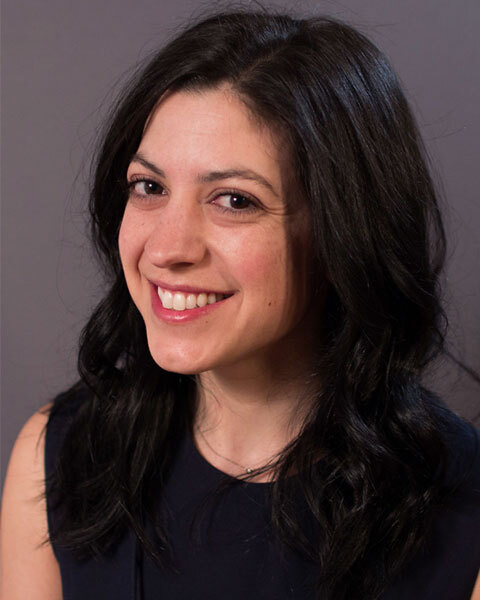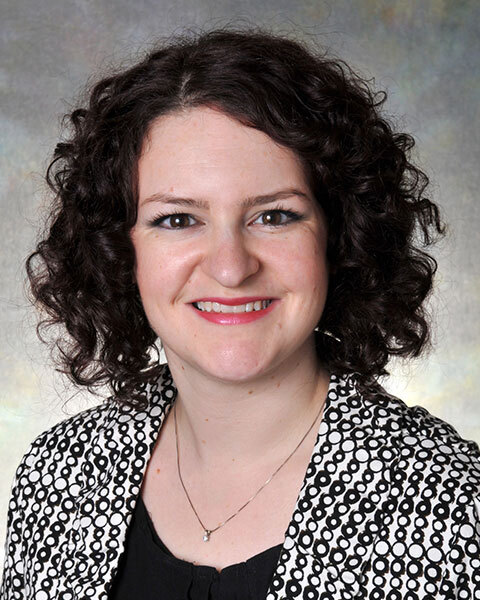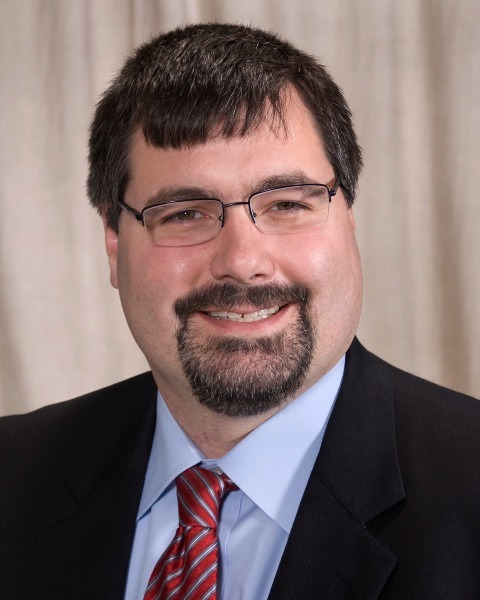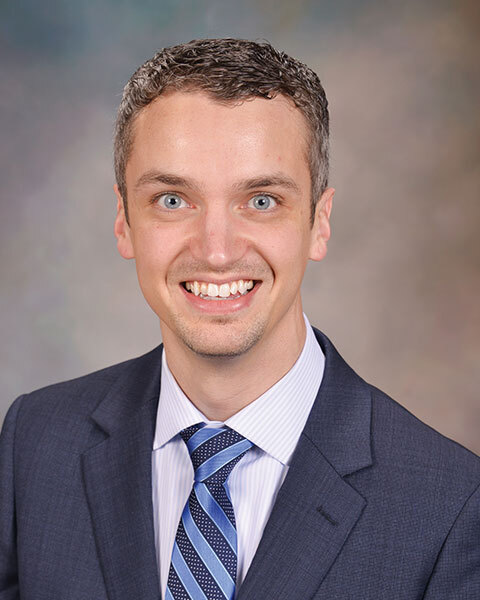
Focus on Phenobarbital: Applications for Alcohol and Sedative-Hypnotic Withdrawal
- Registration Closed

Focus on Phenobarbital: Applications for Alcohol and Sedative-Hypnotic Withdrawal
Recorded: Thursday, March 31, 2022 - Sunday, April 3, 2022
On-Demand Session
Overview
This 1-hour, on-demand session from the ASAM 53rd Annual Conference describes how the pathophysiology and resultant clinical presentation of alcohol and sedative-hypnotic withdrawal informs the rationale behind the use of phenobarbital-based treatment protocols for withdrawal.
Healthcare utilization for alcohol, sedative-hypnotic use, and withdrawal has increased significantly during the COVID-19 pandemic while simultaneously healthcare resources have become strained and increasingly limited. During this time, phenobarbital has gained increased attention as a favorable treatment option for both alcohol and sedative-hypnotic withdrawal. This session will utilize case-based discussion by an expert panel to address emerging questions about phenobarbital use in the inpatient, emergency department, and outpatient settings. There will be a review of the pathophysiology of alcohol and sedative-hypnotic withdrawal and the rationale for phenobarbital's use in these situations, and some of the currently-used strategies, safety concerns, and evidence for efficacy.
The target audience for this Advanced level session includes physicians, nurse practitioners, physician assistants, other clinicians, researchers, residents, fellows, students, and counselors.
This session addresses the following ACGME Competencies: Patient Care and Procedural Skills, Medical Knowledge, Practice-based Learning and Improvement.
Learning Objectives
Upon completion, learners will be able to:
- Describe the pathophysiology of sedative hypnotic withdrawal including alcohol, benzodiazepines, and other sedative-hypnotic agents such as gabapentin, pregabalin, phenibut, baclofen, and GHB.
- Describe the pharmacology of phenobarbital and how its pharmacological profile makes it beneficial in managing alcohol and sedative-hypnotic withdrawal.
- Implement treatment protocols using phenobarbital (either as the primary medication or as an adjunct) and other agents for the treatment of sedative-hypnotic and alcohol withdrawal in the acute care and ambulatory setting.
Course Instructions
- Click on the Contents tab to watch the on-demand recording.
- Click Complete Post Test to answer multiple choice questions. Participants will have 10 attempts to pass and must answer 2 out of 3 questions correctly.
- Click Complete Evaluation to provide valuable activity feedback. Scroll down on all questions as there may be answer options that expand past the size of the window.
- Click the button Claim Medical Credits in the box titled Claim Credits & Certificate. Choose the type of credit and click submit. Click the button View/Print Certificate to save or print your certificate. You can view/print your certificate at any time by visiting the ASAM eLearning Center, clicking Dashboard, and clicking Transcript/Achievements.
Need Assistance?
For assistance logging in, accessing activities, claiming credit, or for other questions or concerns, please check the FAQ page or e-mail Education@ASAM.org
ASAM is proud to offer Essential Accessibility to ensure our website is accessible and functional for all our learners while providing free assistive technology for people with the widest possible range of abilities.
Registration Rates
| Rate Description | Rate |
| ASAM Member | $29 |
| Non-Member | $39 |
| Associate Member | $19 |
| Resident Member* | $19 |
| Student Member* | $19 |
*Residents, Fellows-in-training, Interns, and Students must join ASAM to receive a discounted registration rate. Click here to become an ASAM member. National and Chapter membership dues apply. There is no charge for Students to become a Member, but verification of student status is required.
Membership Question? Call ASAM at 1.301.656.3920, email us, or view the ASAM website for more information.
Refunds & Cancellations
All ASAM e-Learning Center refund requests must be made in writing to education@asam.org within 90 days of purchase. Those requesting refunds for courses that are in progress will receive partial refunds or e-Learning Center credit. Automatic full refunds will be made for any course with a live-course component that has been cancelled.
Registration Deadline: 05/01/2025

Alaina R. Steck
MD
Alaina R. Steck, MD is an Assistant Professor of Emergency Medicine at Grady Memorial Hospital, in the Emory Department of Emergency Medicine. She completed her residency training in Emergency Medicine at Boston Medical Center in Boston, MA and her fellowship in Medical Toxicology at the Emory / Centers for Disease Control and Prevention Combined Fellowship in Medical Toxicology, followed by board certification in Addiction Medicine. She currently serves as the Medical Director of the Grady Medication-Assisted Opioid Treatment clinic, clerkship director for Medical Toxicology, Assistant Director at the Georgia Poison Center, and co-chair of the Drug Safety Task Force of the Injury Prevention Research Center at Emory.
No relevant financial relationships

JoAn Laes
MD
JoAn Laes, MD is an addiction medicine physician and consulting medical toxicologist. Her focus is inpatient addiction medicine and toxicology consultation, and outpatient treatment of opioid and other substance use disorders. She is an owner at Twin Cities Toxicology, providing consultation, medical directorship, and expert opinion in the fields of addiction medicine and medical toxicology. She is board-certified in Internal Medicine, Addiction Medicine, and Medical Toxicology. She completed an internal medicine residency at Hennepin County Medical Center and medical toxicology fellowship at Regions Hospital in St. Paul, Minnesota. She has spoken nationally on the subjects of addiction medicine and toxicology.
No relevant financial relationships

Timothy J. Wiegand
MD, FACMT, FAACT, DFASAM
Timothy J. Wiegand, MD, FACMT, FAACT, DFASAM, specializes in Medical Toxicology and Addiction Medicine. He is an Associate Professor of Emergency Medicine and Director of the Toxicology/Addiction Consult Service at Strong Memorial Hospital and the University of Rochester Medical Center. He is Program Director for the URMC Addiction Medicine Fellowship Program, based out of the Department of Emergency Medicine and core faculty for their Emergency Medicine residency. Dr. Wiegand is also Medical Director for Huther Doyle, an addiction services provider in Rochester, New York.
In addition to ED, hospital, and clinic work treating intoxication, withdrawal, and assisting with pain management for patients maintained on Medications for Opioid Use Disorder Dr. Wiegand is involved with education and research in toxicology and addiction and he lectures locally, nationally, and internationally. Dr. Wiegand serves on the ASAM Board of Directors as Vice President; he is President of NYSAM and he is completing a second term on the Board of the American College of Medical Toxicology.
Dr. Wiegand serves in a volunteer capacity for many local, state, and national committees. He has been awarded the Charlotte Hegedus Award from the National Council on Alcoholism and Drug Dependence for professionals who have consistently demonstrated high level of cooperative work with individuals or groups with substance use disorders for at least five years. Dr. Wiegand is the 2022 awardee of the American Society of Addiction Medicine Annual Award. This award is given to an individual for outstanding contributions to the growth and vitality of ASAM, for thoughtful leadership in the field, and for a deep understanding of the art and science of Addiction Medicine.” And “for expanding the frontiers of the field of Addiction Medicine and broadening our understanding of the addictive process, through research and innovation.” He was also awarded the 2022 ACMT Service Award.

Jeremiah D. Fairbanks
DO
Jeremiah Fairbanks, DO is a current addiction medicine fellow at the University of Minnesota. He completed his medical training at Des Moines University followed by a family medicine residency through the University of Minnesota. He has helped develop programs treating office based opioid use disorder through primary care in southern Minnesota and has his family medicine board certification.

Rachel Haroz
MD
Rachel Haroz, MD FAACT is Associate Professor in the Department of Emergency Medicine at Cooper Medical School of Rowan University and Division Head of Toxicology and Addiction Medicine. She is board certified in Emergency Medicine, Medical Toxicology and Addiction Medicine, obtaining her BA in Biology from Brandeis University, her MD from Tufts University and completed a residency in Emergency Medicine and fellowship in Medical Toxicology. She has spent the last 20 years working in inner city emergency departments, mostly in the Camden area. She helped build and now staffs the Outreach Clinic at the Urban Health Institute at Cooper University Hospital in Camden New Jersey, an addiction medicine specialty clinic dedicated to treating patients with substance use disorders and helped build an integrated clinic for patients with HIV and substance use disorders.
In 2016 she helped create and implement BupeFirst ED, an initiative to prescribe buprenorphine from the Emergency Department and bridge patients to treatment to various community partners and in 2019 helped launch BupeFirst EMS, an innovative program aimed at initiating buprenorphine via paramedics in the field. She is also heavily involved in education as well as various NJ state initiatives to better serve patients struggling with substance use disorders.
CME, CE, CEU and Other Credit Types

ACCME Accreditation Statement
The American Society of Addiction Medicine is accredited by the Accreditation Council for Continuing Medical Education (ACCME) to provide continuing medical education for physicians.
AMA Credit Designation Statement
The American Society of Addiction Medicine designates this enduring material for a maximum of 1 AMA PRA Category 1 Credits™. Physicians should claim only the credit commensurate with the extent of their participation in the activity.
NAADAC, the Association for Addiction Professionals
This activity has been approved by the American Society of Addiction Medicine, as a NAADAC Approved Education Provider, for educational credits. NAADAC Provider #295, ASAM is responsible for all aspects of the programming.
California Association for Drug/Alcohol Educators (CAADE)
This educational program is approved by CAADE: #CP40 999 1222.
California Association of DUI Treatment Centers (CADTP)
This educational program is approved by CADTP: #205.
California Consortium of Addiction Programs and Professionals (CCAPP)
This educational program is approved by CCAPP: #OS-20-330-1222.
Continuing Education Credits (CEUs)
Non-physician participants will receive a certificate of attendance upon completion of the activity and an online evaluation confirming their participation. Participants should submit his/her certificate of attendance to their professional organization/institute.
Maintenance of Certification (MOC) or Continuing Certification Programs (CCP)
American Board of Medical Specialties (ABMS)
Through the American Board of Medical Specialties (“ABMS”) ongoing commitment to increase access to practice relevant Continuing Certification Activities through the ABMS Continuing Certification Directory, The ASAM 53rd Annual Conference has met the requirements as a MOC Part II CME Activity (apply toward general CME requirement) for the following ABMS Member Boards: Allergy and Immunology, Anesthesiology, Colon and Rectal Surgery, Family Medicine, Medical Genetics and Genomics, Nuclear Medicine, Physical Medicine and Rehabilitation, Plastic Surgery, Preventive Medicine, Psychiatry and Neurology, Radiology, Thoracic Surgery, Urology
American Board of Preventive Medicine (ABPM)
The American Board of Preventive Medicine (ABPM) has approved this activity for a maximum of 1 credit towards ABPM MOC Part II requirements.
American Board of Anesthesiology (ABA)
This activity contributes to the CME component of the American Board of Anesthesiology’s redesigned Maintenance of Certification in Anesthesiology TM (MOCA®) program, known as MOCA 2.0®.
American Board of Pediatrics (ABP)
Successful completion of this CME activity, which includes participation in the activity, with individual assessments of the participant and feedback to the participant, enables the participant to earn a maximum of 1 MOC point in the American Board of Pediatrics’ (ABP) Maintenance of Certification (MOC) program. It is the CME activity provider’s responsibility to submit participant completion information to ACCME for the purpose of granting ABP MOC credit.
American Board of Internal Medicine (ABIM)
Successful completion of this CME activity, which includes participation in the evaluation component, enables the participant to earn up to 1 Medical Knowledge MOC point in the American Board of Internal Medicine’s (ABIM) Maintenance of Certification (MOC) program. Participants will earn MOC points equivalent to the amount of CME credits claimed for the activity. It is the CME activity provider’s responsibility to submit participant completion information to ACCME for the purpose of granting ABIM MOC credits.
American Board of Surgery (ABS)
Successful completion of this CME activity, which includes participation in the evaluation component, enables the learner to earn credit toward the CME and/or Self-Assessment requirements of the American Board of Surgery’s Continuous Certification program. It is the CME activity provider's responsibility to submit learner completion information to ACCME for the purpose of granting ABS credit.
American Board of Psychiatry and Neurology (ABPN)
Successful completion of this CME activity can be used to satisfy the American Board of Psychiatry and Neurology’s (ABPN) CME requirement for Maintenance of Certification program.
American Board of Addiction Medicine (ABAM)
Successful completion of this activity can be used to satisfy the American Board of Addiction Medicine (ABAM) Tmoc credit requirements.
Royal College of Physicians and Surgeons of Canada (RCPSC)
Royal College Fellows can use participation in Accredited Continuing Medical Education to earn Section 3 Credits.
Disclosure Information
In accordance with disclosure policies of ASAM and the ACCME, the effort is made to ensure balance, independence, objectivity, and scientific rigor in all CME activities. These policies include mitigating all possible relevant financial relationships with ineligible companies for the Planning Committees and Presenters. All activity Planning Committee members and Faculty have disclosed relevant financial relationship information. The ASAM CME Committee has reviewed these disclosures and determined that the relationships are not inappropriate in the context of their respective presentations and are not inconsistent with the educational goals and integrity of the activity.

